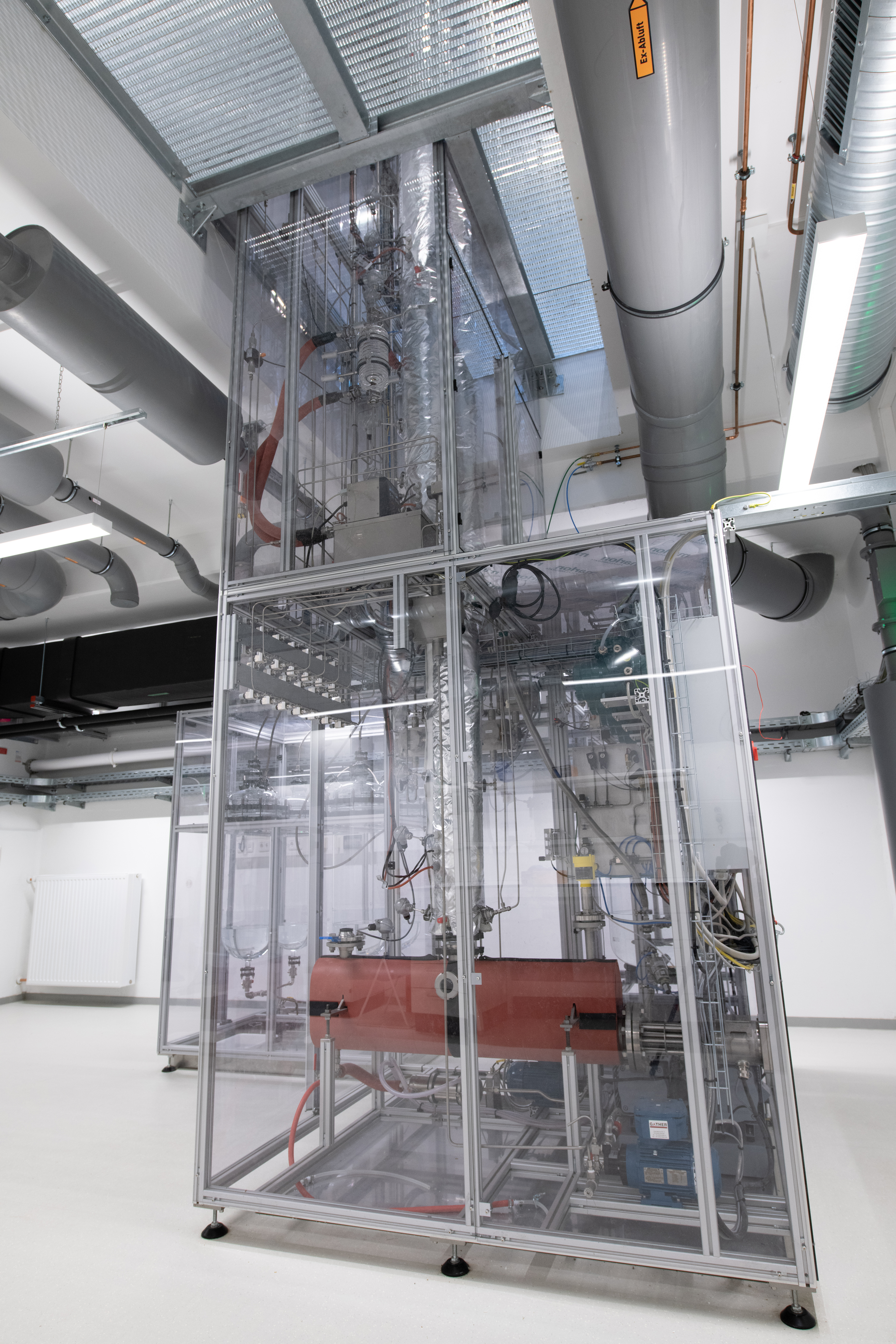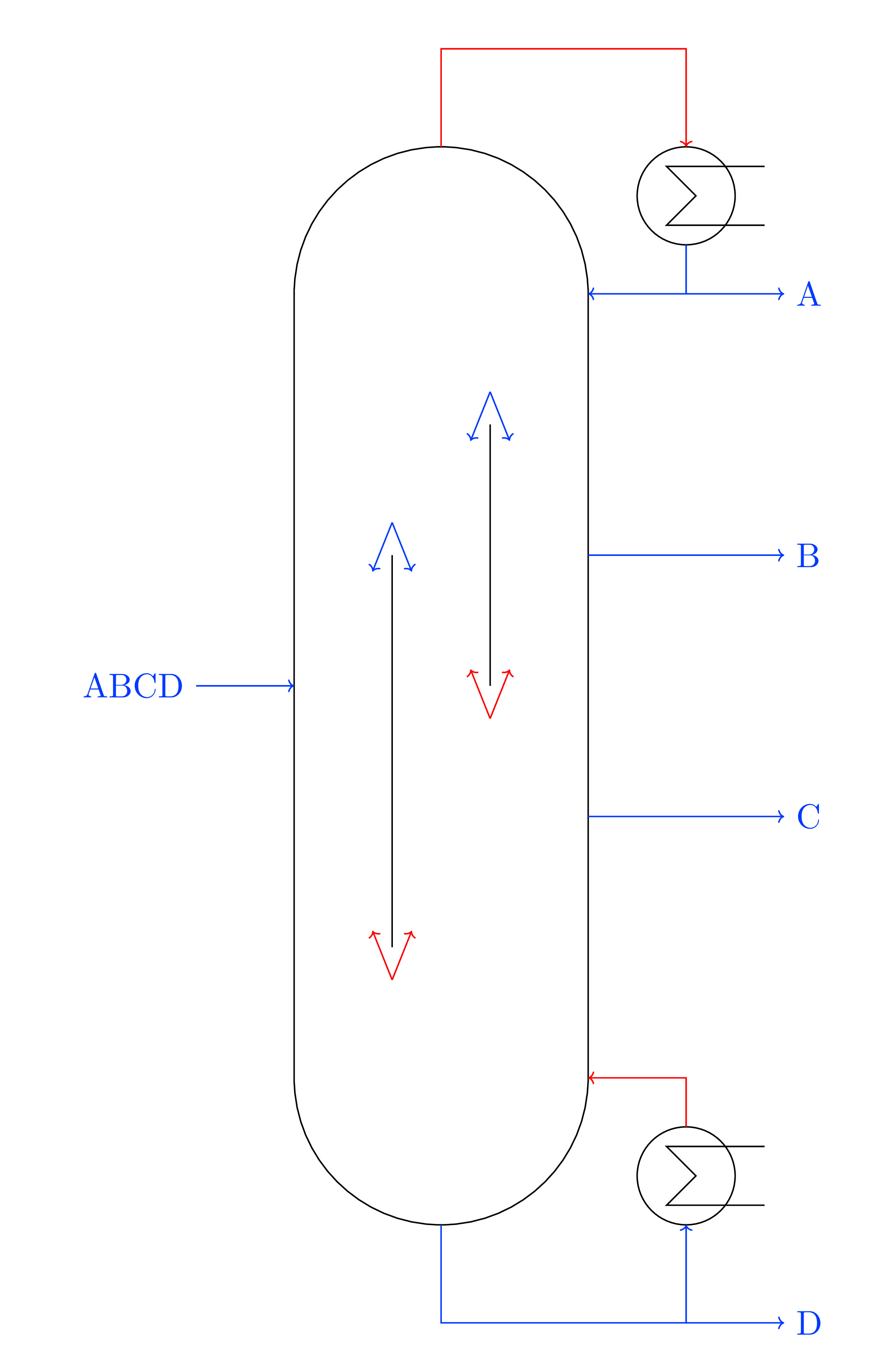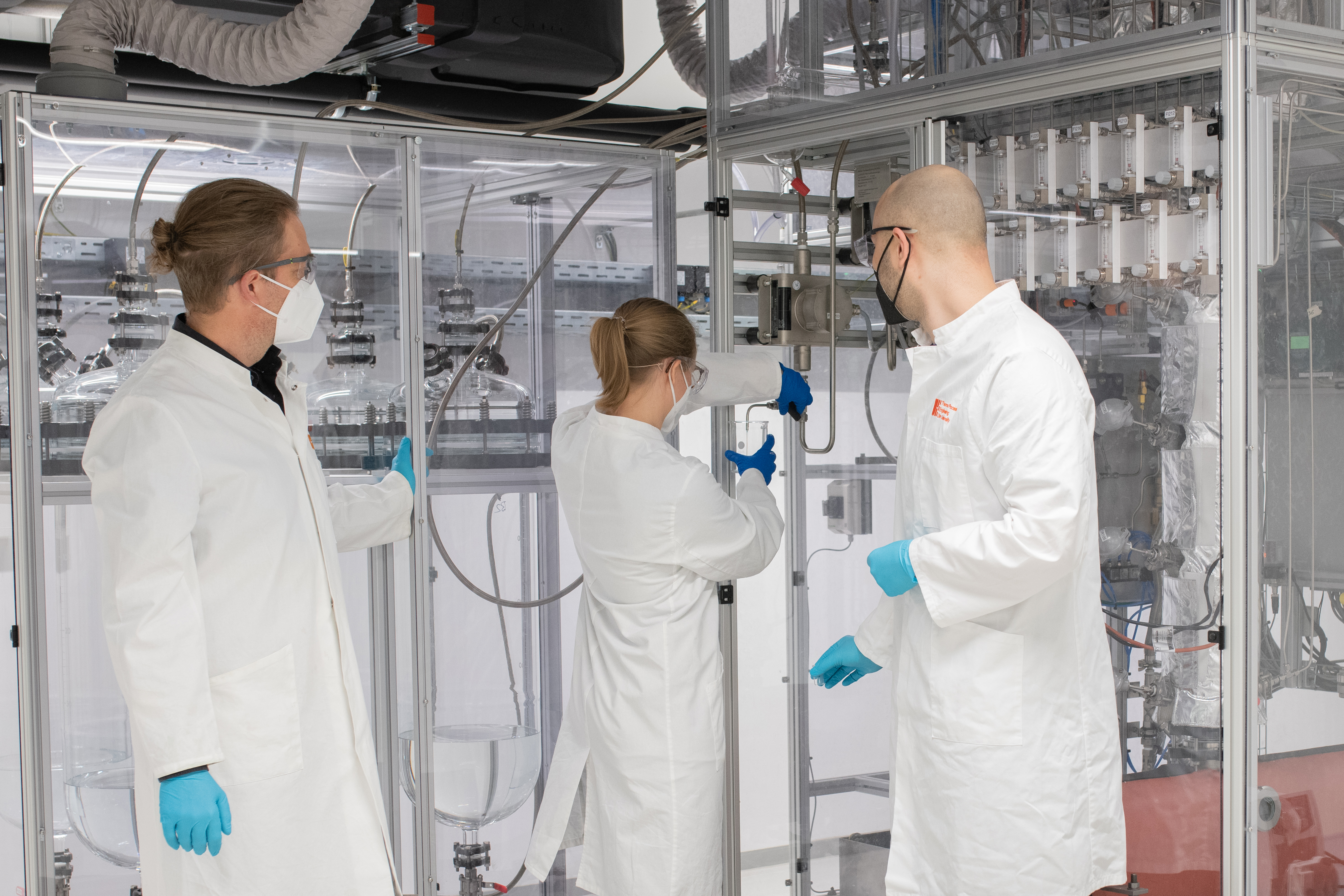In chemical process engineering, distillation is the most important thermal separation process and is responsible for around ten percent of Europe's energy requirements. It is therefore also a decisive lever for saving energy. This can be achieved, for example, by combining several processes in a single apparatus.
Unfortunately, such apparatuses are often difficult to represent in conventional simulation software. In order to optimally design the processes and save energy, it is precisely these simulations that are needed. This is where our work comes in. Our researchers at Fraunhofer ITWM develop customized simulations and optimizations that represent exactly such processes robustly and efficiently. These help to show the potential in saving energy and costs for companies with the help of new technologies.



